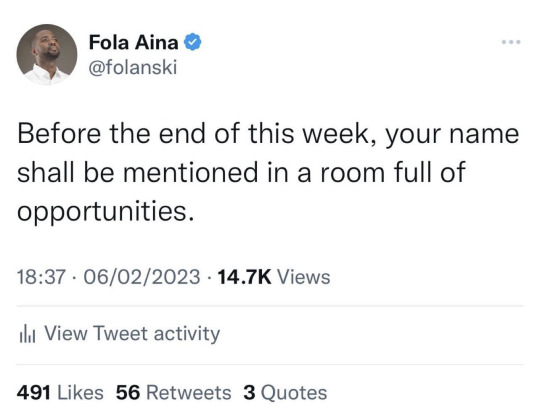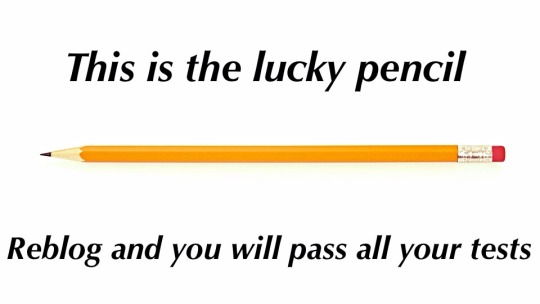Text
“If you have the ability to love, love yourself first.”
— Charles Bukowski
704 notes
·
View notes
Text
⭐Vitamin Cheat Sheet⭐
Vitamin A: Vision, immune system, skin health.
Vitamin B1 (Thiamine): Energy metabolism, nerve function.
Vitamin B2 (Riboflavin): Energy production, skin health.
Vitamin B3 (Niacin): Cellular energy production, skin health.
Vitamin B5 (Pantothenic Acid): Metabolism, hormone production.
Vitamin B6: Brain function, mood regulation.
Vitamin B7 (Biotin): Healthy hair, skin, and nails.
Vitamin B9 (Folate): Cell division, DNA synthesis.
Vitamin B12: Nervous system, red blood cells.
Vitamin C: Immune system, collagen synthesis.
Vitamin D: Bone health, immune function.
Vitamin E: Antioxidant, skin health.
Vitamin K: Blood clotting, bone health.
Calcium: Bone and teeth health, muscle function.
Iron: Oxygen transport, energy production.
Magnesium: Nerve function, muscle relaxation.
Zinc: Immune system, wound healing.
Potassium: Fluid balance, nerve function.
Iodine: Thyroid function, metabolism.
Selenium: Antioxidant, thyroid health.
38K notes
·
View notes
Text
MARCH
I have honestly been feeling lonely but i know i can do this.
To dos:
Solo book store date
Solo coffee shop date
Visit a food market
Have a SPA date
Find a an income source
Reminders:
I am able
Stewardship
My strength lies in the lord
Everything i want is on the other side of fear
6 notes
·
View notes
Text
Stop and ask yourself this question:
How engaged was i in everything i did today?
Argue with yourself and reflect on your experience.
1 note
·
View note
Text
I am so grateful for God’s love, it has continually nourished.
1 note
·
View note
Text
Reminder!
-You deserve everything you put your mind to.
-If you can think about it you can do it.
-Love yourself.
-Nourish yourself with the same love you wish to be given by a loved one.
1 note
·
View note
Text
6 September 2022
Today was an awesome day😃
Realisation
Sometimes you don’t need to say words out loud for Father God to hear you. Remember he knows what you need. Before i wrote my exam today i was in fear, so i decided to just close my eyes and pray just like i always do but today was different. As i am typing this i so much remember actually not verbalising my prayer i went into instant blankness and quietness and i realise that in that moment after saying my Amen i actually did not notice what had just happened. I learnt that your faith in his work forever walks with you in times you need it, it will show up and do the work.
1 note
·
View note
Text
28 August 2022
- I’m starting my trial exams this week, i am quite excited, rather i’m choosing to take fear as excitement.
-I am studying smart.
Reminders
-Keep on working and working
- Do what needs to be done to achieve the goals ( They are already achieved i just need to make sure i am doing what needs to be done so i can attain the goals)
- Remember you are not suffering you are learning and nothing is better than gaining knowledge. Proverbs 18:15 “An intelligent heart acquires knowledge, and the ear of the wise seeks knowledge.”
- I strive no matter how much i succeed
1 note
·
View note
Text
Needed this.
Friendly reminder that you don't need a pretty desk to be successful in your classes.
Friendly reminder that cheap highlighters still work the same as expensive ones.
Friendly reminder that you don't need a MacBook to get straight A's.
Friendly reminder that you can study anywhere that works for you.
Friendly reminder that academia should be personalized and not changed to fit an aesthetic.
Friendly reminder that if you work hard you can achieve amazing things even if you don't have the fancy things other people do.
Friendly reminder that it's ok to fail classes multiple times.
Friendly reminder that academics aren't a race and are way too competitive.
Friendly reminder that stumbling and failing is actually extremely important and beneficial to you and your growth.
Friendly reminder that perfection is fake.
3K notes
·
View notes
Text

28 June (posted late hence the date)
Woke up quite early this morning (4:30) and I still needed to complete my English film study work but I won’t lie I felt a bit unable to set my mind to do so. At around 7:25 I had managed to complete 4 different English epic film study paragraphs and felt proud of myself as I am working towards being productive, and also journaling about it.
1 note
·
View note
Photo

What Are Boundaries and How to Identify Your Own
Boundaries are important and tell others how we wish to be treated. Without them, we risk falling into people-pleasing tendencies that leave us resentful and dissatisfied with our lives. Saying this, despite the importance of being able to identify and set boundaries with those around us, most of us absolutely suck at 1), knowing what our boundaries are and 2), communicating them to those around us.
And it’s not entirely our fault we’re boundary(less); maybe you were used to placing your thoughts/feelings aside to evade your caregiver’s wrath as a child, maybe you’ve resorted to people-pleasing out of a fear of being yourself, or maybe you hold love on such an inexplicable high pedestal that you fear setting boundaries will scare people away.
In all cases, we lose sense of our worth in-process and consequently abandon our own authentic voice. Becoming acquainted with our standards and being able to voice them to the people we care about is therefore imperative.
How exactly do we do this, though? And what does a boundary even mean?
Mark Manson’s Description Of Boundaries
Mark Manson, author of the “subtle art of not giving a f*ck* and self-help blogger describes boundaries as the following,
Healthy Personal Boundaries = Taking responsibility for your own actions and emotions, while NOT taking responsibility for the actions or emotions of others.
All this simply means is that it is my job to take care of me, and your job to take care of you. Issues arise with us when we confuse these roles.
For example, you’re dating someone who tells you not to go out on a Friday night because it makes them feel insecure. This would be them assuming you need to act a certain way to make them feel comfortable.
In contrast, you self-abandoning and not going out with friends to appease your partner would be you taking responsibility for their emotions in favor of your own. In this case, you’re not doing right by yourself, you’re doing right by them.
Both of these are bad as 1), you self-abandon and become resentful when you let go of parts of your personal life in order to appease your partner, and 2), your partner doesn’t learn to manage their own emotions. Boundaries are standards we set that are for us; they nourish our wellbeing and ensure others know how to treat us.
Can you think of any more examples where you don’t take accountability for your own emotions or take too much responsibility for others? I’ve listed a few below.
Saying yes when you want to say no to make someone feel better (people-pleasing).
Being overtly caring and nice and getting frustrated when you don’t get something in return (covert contracts).
Telling your partner they need to reply quicker as it’s making you feel insecure and anxious (despite no red flags).
Figuring Out What Your Boundaries Are
Brené Brown, the American researcher, writer, and teacher, describes boundaries as simply being “What’s okay, and what’s not”. It’s knowing what standards need to be met in order to keep you physically, mentally, and spiritually healthy, and communicating that effectively to the people around you.
This can be difficult as many of us don’t even know what is good for us, and what is not. This means developing our self-awareness in order to move forward setting boundaries that nourish our wellbeing. Let’s look closer at how we can do this.
Knowing What Is Good For Us and What Is Not
A great way to figure out what is good for you and what is not is simply looking into the past at things that went wrong and discerning what you needed in those moments.
For example, maybe you dated someone who was emotionally unavailable and you allowed them to walk all over you. In hindsight, you can see that emotional availability is very important to you, and therefore, dating someone emotionally available is a boundary you need to set in the future.
Is this person avoidant with me, or are they open? You can ask yourself. If open, great, you can allow them in. If not, they’re not allowed to cross the boundary. Your boundary here is only moving forward with people who show they are willing to be emotionally available with you.
Back to the previous point and Mark Manson’s definition. Someone with poor boundaries would likely stay in a toxic environment with someone unavailable. Someone with proper boundaries would walk away I.E taking responsibility for their own actions and emotions. They wouldn’t try to force availability out of someone — that would be taking responsibility for someone else’s actions and emotions.
People have a right to do what they want. It only becomes a problem for you when you tolerate it and then get angry at being disrespected. You don’t have to stay in anything that is uncomfortable for you. Part of having healthy boundaries is accepting people have a right to do and feel as they like, but that you can express your disagreement and walk away if nothing changes.
Boundaries Are FLUID
Boundaries come in three forms; porous, rigid, and healthy.
Porous Boundaries
Porous boundaries are those we start implementing but don’t maintain. For example, you tell your partner you won’t tolerate mistreatment but in light of similar behaviors, you fail to follow through on any real consequences. Likewise, you may tell yourself you won’t keep saying yes when you really mean no, yet continue to people-please.
Porous boundaries arise when we fail to nurture our long-term wellbeing in favor of short-term relief. They’re also a result of a lack of trust in our own capabilities to stand in our worth.
Rigid Boundaries
Rigid boundaries are too strong and don’t allow for any compromise. This can look like an avoidantly attached individual being unwilling to open up to their partner despite conversations and concerns around their emotional unavailability. It may also look like someone refusing to ask for help out of fear of appearing weak, or “needy”.
Rigid boundaries, like porous ones, are rooted in fear. Whereas individuals with porous boundaries fear the repercussions of having solid boundaries, individuals with rigid ones fear the consequences of not having theirs upheld.
Healthy Boundaries
Individuals with healthy boundaries have a strong sense of self and are able to stand their ground when challenged. They’re the people who won’t stand mistreatment after expressing their needs and won’t compromise their values for the sake of others. They’re also the individuals who are fluid and are understanding that not all boundaries are fixed; they can be changed depending on the context.
Furthermore, people with healthy boundaries aren’t ruled by fear. They see their experiences for what they are and are able to adjust or reinforce their boundaries when necessary.
Final Thoughts
Beginning to set boundaries is a challenge but as far as challenges go, it’s worthwhile to invest your time in this one. Healthy boundaries will not only ensure you are taking care of your own relationship, but also the relationships of those around you.
By Joe Gibson - Above The Middle (Medium). Photograph by Juan Mendez On Pexels.
251 notes
·
View notes
Text


Nothing as therapeutic as reading on the road.
Currently reading A mother’s grace by Rosie Goodwin
1 note
·
View note

